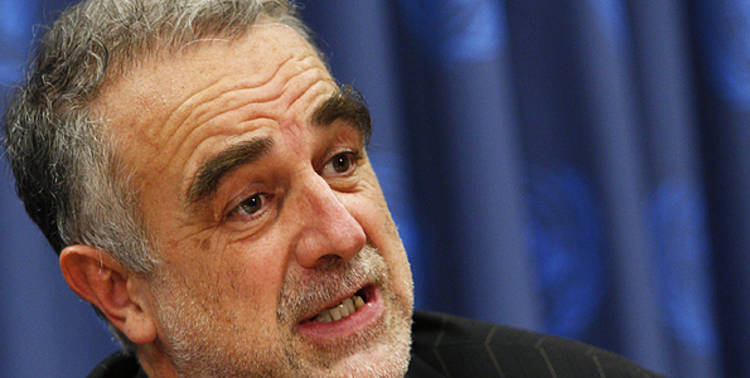


Louis Moreno Ocampo, the International Criminal Court (ICC) Prosecutor, came on an official visit to Kenya 10 days ago where he was welcomed by President Mwai Kibaki and Prime Minister Raila Odinga. Things seemed to go smoothly at first with high level meetings set up to discuss the possibility of initiating investigations of the masterminds of the post election violence that left more than 1300 Kenyans dead and hundred of thousands displaced in early 2008.
The ICC has repeatedly stated that investigations carried out in The Hague would need to complement a national justice process that addresses the root causes of the violence and prosecutes those who carried out the violence. The ICC is after all a court of last resort. It is up to Kenyan leaders to put an end to impunity. Unfortunately, there continues to be a lack of political will to initiate domestic procedures to set up a local tribunal and truth and reconciliation commission. This past week another version of a Special Tribunal Bill was thrown out of Parliament due to a lack of quorum and most probably a boycott from senior politicians.
It now seems that the Kenyan Government is declining to refer the post-2007 election violence cases to the ICC. This leaves no other options to the Prosecutor except for invoking his own powers under article 15 of the Rome Statute to move on his own initiative – or proprio motu powers – to open investigations. Kenya would then become the first case in the history of the ICC to be investigated in such a way as opposed to being referred to by the current Government (a State Party to the ICC) or by the UN Security Council. On multiple occasions, Ocampo has stated that Kenya would serve as an example of justice to the rest of the world.
But the point is that ordinary Kenyans already lack confidence in their judicial system, which is why an overwhelming majority of them is favoring prosecution by the ICC. Unfortunately, this route will not solve all the root causes that led to the violence in early 2008 and cannot be the only venue to justice. I feel there are overwhelmingly high expectations towards the ICC.
A journalist friend last week suggested that perhaps if investigations on those who are accused of masterminding the violence begin at The Hague, this would invariably spark the domestic process. “After all,” he said, “no one wants to go down by himself or herself.” Fair enough, I thought, he may have a point but I think he is overly optimistic. Although the names of the people who are accused of masterminding the political violence contained in the envelope that was handed over by former UN Secretary General Kofi Annan to the ICC have not been officially made public, they are fairly common knowledge.
A report entitled On The Brink of the Precipice: A Human Rights Account of Kenya’s post-2007 Election Violence published by the Kenya National Commission on Human Rights, clearly documents episodes of violence throughout the country and in Annex One provides a detailed list of the ‘alleged’ perpetrators, complete with their background, the allegations made against them and the supporting information. Quite a number of Members of Parliament are listed here, not to mention community leaders, school principals and radio stations accused of inciting ethnic violence. No wonder there seems to be a lack of political will to initiative domestic prosecutions. A whole lot of people would stand trial and many would go down together. ‘Mal commune mezzo gaudio,’ we say in Italy. In other words, a shared pain is a half joy.
Source URL: http://test.casaitaliananyu.org/magazine/focus/facts-stories/article/kenya-post-election-violence-shared-pain-half-joy
Links
[1] http://test.casaitaliananyu.org/files/11904ocampo1258359343jpg